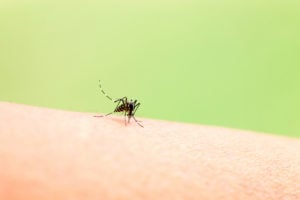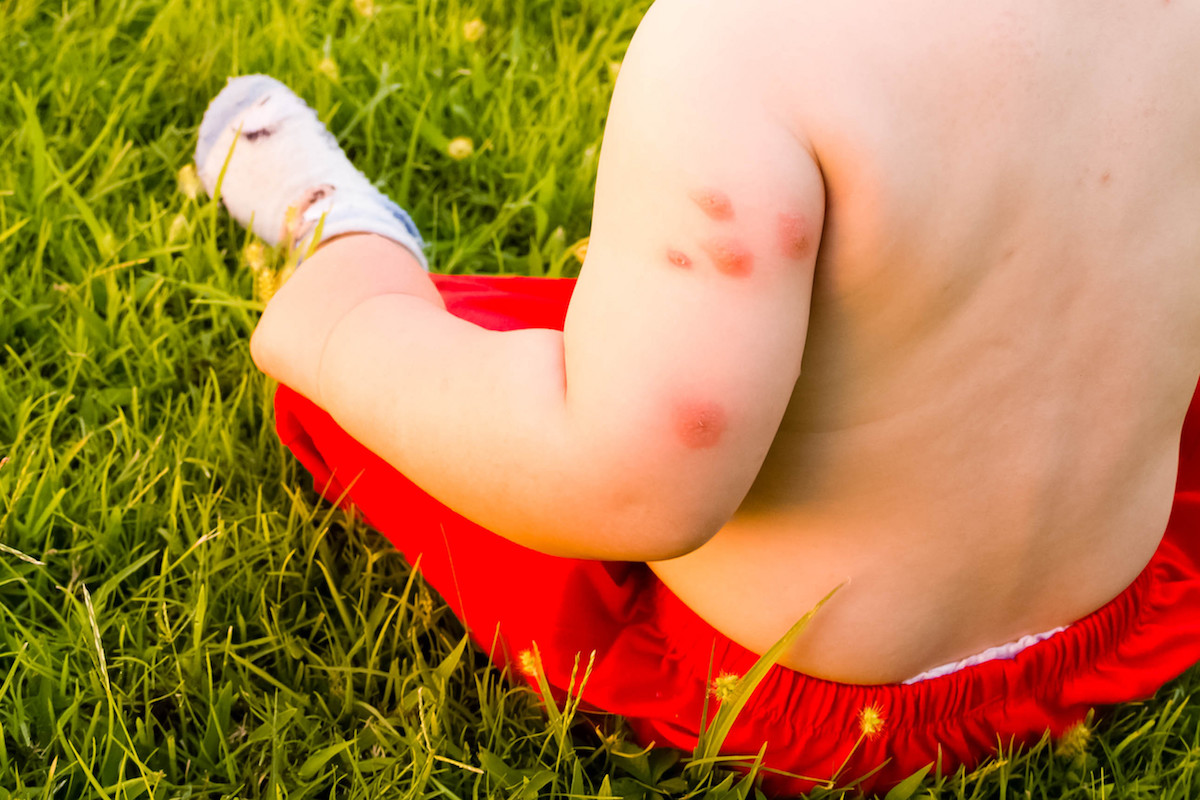The bites that drive us all crazy each summer aren’t just annoying—they signal a growing health problem and our landscapes may be part of the problem.

The tiny mosquito happens to be the deadliest creature on the planet, causing over one million deaths each year from the diseases they spread, mostly in tropical regions.
In the U.S., cases of mosquito, tick, and flea borne diseases more than tripled from 2004 to 2016, in large part due to the 2016 Zika outbreak. And the CDC warns that mosquito-borne disease epidemics are happening more frequently:
-
About 2,000 people died from West Nile virus in the U.S. since 1999, including 217 last year.
-
The first U.S. transmitted cases of Chikungunya virus occurred in Florida in 2014.
-
Over 5,600 cases of Zika virus have occurred the U.S. and 37,000 in U.S. territories since 2016; causing birth defects for 1 in 12 babies with mothers infected in the first trimester.
-
Heartworm is now spread to dogs, cats, other pets and wildlife in all 50 states.
Why Mosquitoes Bite
 Mosquitoes are really good at biting us—a fact that's most noticeable each summer.
Mosquitoes are really good at biting us—a fact that's most noticeable each summer.
Mosquitos thrive in warm weather, making April through October their biggest season and the reason why they're a major nuisance at summer barbecues and pool parties.
Mosquitos first find us through our breathe, sensing the invisible clouds of carbon dioxide around us from up to 100 feet away.
Once they’re in close range, our personal body odors that draw to them to the skin. Some scientists believe diet may play a role in why mosquitoes prefer some people over others.
Scents like beer, cheese and perfumes have even shown to attract them more.
Then as the mosquito goes “fishing” for a blood vessel in your skin it emits enzymes that cause an allergic reaction in most people—those awful, itchy bumps we’re all too familiar with!
And if that mosquito also bit a person or animal infected with a virus or a parasite that it can spread, there’s a chance you will become infected, too.
Stopping Mosquitoes Bites
Female mosquitos are the ones that do all the biting in order to get nutrients they need to produce their eggs. After drinking her fill of blood, she flies away to find a good place with still or stagnant water to lay her eggs.
Bird baths, buckets, dog bowls, even storm drains and gutters can become mosquito breeding grounds. Regularly cleaning and draining these items can help prevent more mosquitoes from hatching in the landscape, as well as:
- Making sure doors and windows are screened or closed
- Trimming back vegetation and keeping lawns mowed
- Planting basil, lantana, lemongrass, garlic, marigolds, rosemary, catnip, mint and other plants, which may have a repelling effect
- Removing yard debris, loose tarps and places where water regularly collects
Using mosquito repellents whenever you go outside, especially during the mornings and evenings, is the next best step to prevent mosquito bites.
Most people are familiar with DEET sprays applied to clothes or skin, but newer spacial repellents can also stop mosquitoes and don’t require spraying each person who goes outdoors.
Learn more about this method in the next blog in our series.
Top 10 Cities for Mosquitoes
Mosquitos live all 50 states, but people who live in these areas may be especially at risk of mosquito bites.
1. Atlanta
2. Washington, D.C.
3. Chicago
4. New York
5. Miami-Ft. Lauderdale, Fla.
6. Dallas-Ft. Worth, Texas
7. Houston
8. Detroit
9. Charlotte, N.C.
10. Nashville, Tenn.
Source: Orkin’s Top 50 Mosquito Cities, a ranking of metro areas by the number residential and commercial customers seeking mosquito treatments from April 1, 2016 to March 31, 2017.





